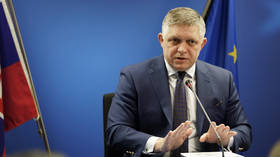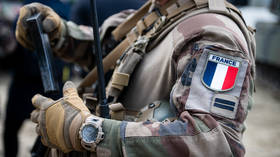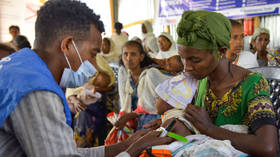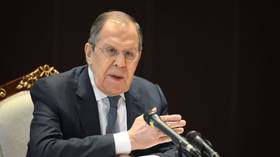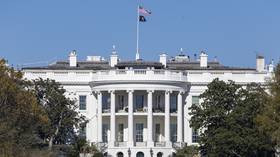Striving for safer world the focus of Russian forum
On the eve of the anniversary of Black Monday, marking the credit crunch of 2008, President Dmitry Medvedev is hosting a major international conference on global security in the central Russian city of Yaroslavsl.
Despite it being his 44th birthday, the Russian leader is having little time for celebration.
More than 500 politicians, economists and scientists from eighteen countries are attending the event, among them the prime ministers of France and Spain, Francois Fillon and Jose Luis Rodriguez Zapatero.
The Russian president has had individual meetings with them, after which he addressed the conference.
Dmitry Medvedev said that the ongoing financial crisis has contributed to an increase in global instability and called on the countries to apply greater responsibility to their policies.
”Last year we all witnessed how the unwise – and I could use a stronger word – financial policies of one state led to the world economic crisis, the consequences of which affected almost all the states whose representatives have gathered here now,”' he said.
“Epidemics, technological catastrophes, social instability, extremism, terrorism, illegal migration, piracy and organized crime – all these arise when a state can not fulfill its functions and responsibilities. At the same time these phenomena pose a threat to all states.”
President Medvedev put special emphasis on the role of sovereign states in tackling the global crisis and its consequences. He stressed a need for rational priorities in politics.
”Politics is becoming a complicated and sophisticated area. Smart and rational policies, pragmatism, need to replace unreasonable things in the political sphere: dangerous illusions of nationalism, on one hand, and the archaic prejudices of class struggle, on the other; utopian plans of global domination, no matter what they are called-a global caliphate or ‘benevolent hegemony’, high-brow excuses for military adventures, suppression of human rights and freedoms, and any unlawful actions,” he said. “It would be good to leave all that in the past – although I realize this is more easily said than done.”
Global and European security
The forum in Yaroslavl is a part of Russia’s promotion of its initiative for new global security architecture.
After Georgia's aggression against South Ossetia last year, the Russian president put forward the idea of a new European Security Treaty.
“Unfortunately, the recent events in the Caucasus showed that the current global security system can't prevent military adventures today. But we should do everything to create a modern reliable architecture of this security for the future. To our mind, a new approach, a new legally-binding European Security Treaty should contribute to the resolution of these tasks,” Medvedev said at the time.
Although the suggestion has caused a wide range of reactions, there have been no practical agreements on the issue.
Analysts say this forum can bring changes:
“I think the conference could lead to practical ideas. It’s not intended to make the immediate practical decisions that are the responsibility of different governments,” believes Social Sciences professor from New York University, Craig Calhoun.
“There is an enormous interest in global security, and there is an interest in avoiding threats like environmental catastrophe. This requires working together across different national lines, and therefore there is a lot of interest in conferences like this, there is an interest in the role that Russia will play as the world power. And so I think that making this a regular event would be very desirable,” he said.
Thierry de Montbrial, a French economics and international relations specialist and researcher, says the conference is important as a platform for dialogue.
“Unfortunately, there is a lot of misunderstanding between Russia and the West. Very deep misunderstanding, which is based on ideological considerations. The West on the whole continues to insist on propagating democracy or human rights and so on. We should stop constantly preaching you what you should do. That is highly counterproductive. But the fact that we do not have the same kind of political regime, for instance, does not mean that we should not cooperate in some major issues internationally."
According to Parag Khanna from the New America Foundation, as Russia plays an important role in what happens in Eurasia, the need for dialogue between Russia and the rest of the world is crucial.
Professor Amy Chua from Yale Law School, who took part in “The Modern State Against Terrorism, Separatism and Xenophobia” session, says she is pleased with the open and constructive discussion they had.
“At first there were many arguments and disagreements about even the title of the session – should a fight against terrorism be put in the same sentence as xenophobia and separatism,” she told RT.
“One thing that is useful is to see people who really have very different views facing each other. If you don’t see that the other side is a monster or a crazy person, you just realize that this is their perspective.”
Building a post-crisis world
The participants are also focusing on the aftermath of the world economic crisis. Among the issues to be discussed are new international financial institutions and democratic standards of modern statehood.
It is not accidental that the second day of the conference falls on the first anniversary of Black Monday, which shocked the world on September 15, 2008. On that day, the US’s fourth largest bank, Lehman Brothers, filed for bankruptcy and the Bank of America took over the major US investment bank, Merrill Lynch. Asian and European stock markets plunged in the wake of the credit crunch in the United States.



